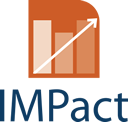Positive externalities not taken into account
When a household takes a decision to externalise PHS, it will not take into account the positive externalities these services create for third parties, rather, it will only compare its own costs with its own benefits. In this context, the socially optimum quantity, which is defined as the demand that would be optimal, taking into account all positive externalities of PHS, is higher than the household optimal quantity.
Below, we list some of the positive externalities (or earn-back effects) for the economy that arise when someone externalises PHS but are not taken into account by households when considering whether to outsource PHS (for a complete list of all earn-back effects, see Part 5):
- Externalising PHS in the formal economy will be positive for both the worker (revenues, and so on) and society as a whole (decrease in unemployment, increase in tax revenues from the company that hires the worker, and so on).
- When externalising PHS, a user can increase working time or return to the labour market. For society as a whole, that could result in an increase in tax revenues, an increase in productivity for the user’s employer, and so on.
- The user’s health improvements that result from PHS (care) might decrease public costs for medical expenses.
- Early childhood education and care promote educational attainment, social development of children from disadvantaged backgrounds and social inclusion. In the long term, this is also positive for society as a whole (less poverty, higher productivity, etc.).






